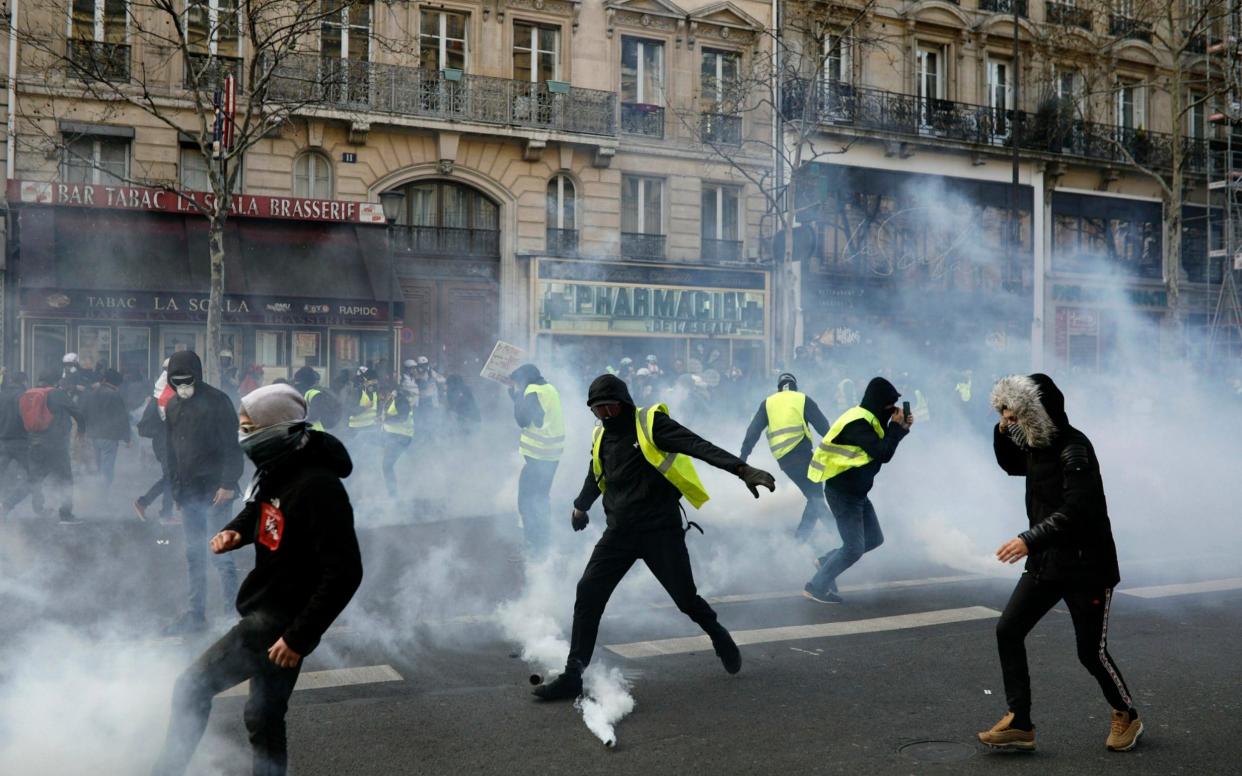Police arrest 70 in 'yellow vest' protests as soldiers deployed to prevent Paris rioting

Police arrested 70 “yellow vest” protesters across France on Saturday as soldiers were deployed to prevent a repeat of rioting in Paris last weekend.
Anti-government demonstrators set fire to dustbins in the French capital, and smashed shop windows and hurled stones at police in the northern city of Lille.
However, the violence was limited compared with the rampage in Paris last Saturday, when more than 100 luxury shops, an exclusive restaurant, a bank and newspaper kiosks were wrecked, looted or set on fire.
This time, police fired tear gas at protesters in Paris, Lille, Lyon in eastern France and Montpellier, in the south.
Protests were banned on the Champs-Elysées and in key areas of Nice, Toulouse and Bordeaux.
Dozens of police vehicles including armoured lorries and water cannons encircled the Arc de Triomphe at the top of the Champs-Elysées, Paris’s grandest avenue.
Officers searched protesters and patrolled in front of boarded-up shops as helicopters and drones monitored the movements of demonstrators.
About 6,000 police officers were deployed in Paris, with troops guarding sensitive sites.
The government views the potential escalation of civil unrest as a serious risk and vowed after last Saturday that there would be “zero tolerance” for further violence or looting.
Some 8,000 demonstrators took to the streets of French cities, according to an interior ministry estimate, which suggested a marked drop from last weekend, when nearly 15,000 were counted at the same time.
Critics of Mr Macron objected to the drafting in of 3,000 soldiers from Operation Sentinelle, the highly visible anti-terrorist deployment that began after attacks in Paris in 2015.
Preventing rioting on the 19th consecutive Saturday of protests was seen as a crucial test of the authority of Emmanuel Macron, the French president, who was accused of failing to prepare for the violence last weekend.
Days later, the Paris police chief was sacked and tough new riot control measures were announced.
The “yellow vest” protests began in November over fuel taxes but quickly broadened into a revolt against a political elite seen as out of touch with the everyday concerns of ordinary French people.
Some demonstrators in Paris carried banners demanding “Frexit”. Others held placards calling for referendums on major government policy decisions and the resignation of Mr Macron, dubbed the “president of the rich” by protesters.
Last weekend rioters attacked luxury shops on the Champs-Elysées and the iconic Fouquet’s restaurant, a symbol of privilege which is to remain closed for several months for repairs.
"It would have been asking for trouble to go back to the Champs-Elysées," said Jean-Paul Tonson, 57, a civil servant. "But we're going to keep showing up, we're not going to back down.”

 Yahoo News
Yahoo News 
